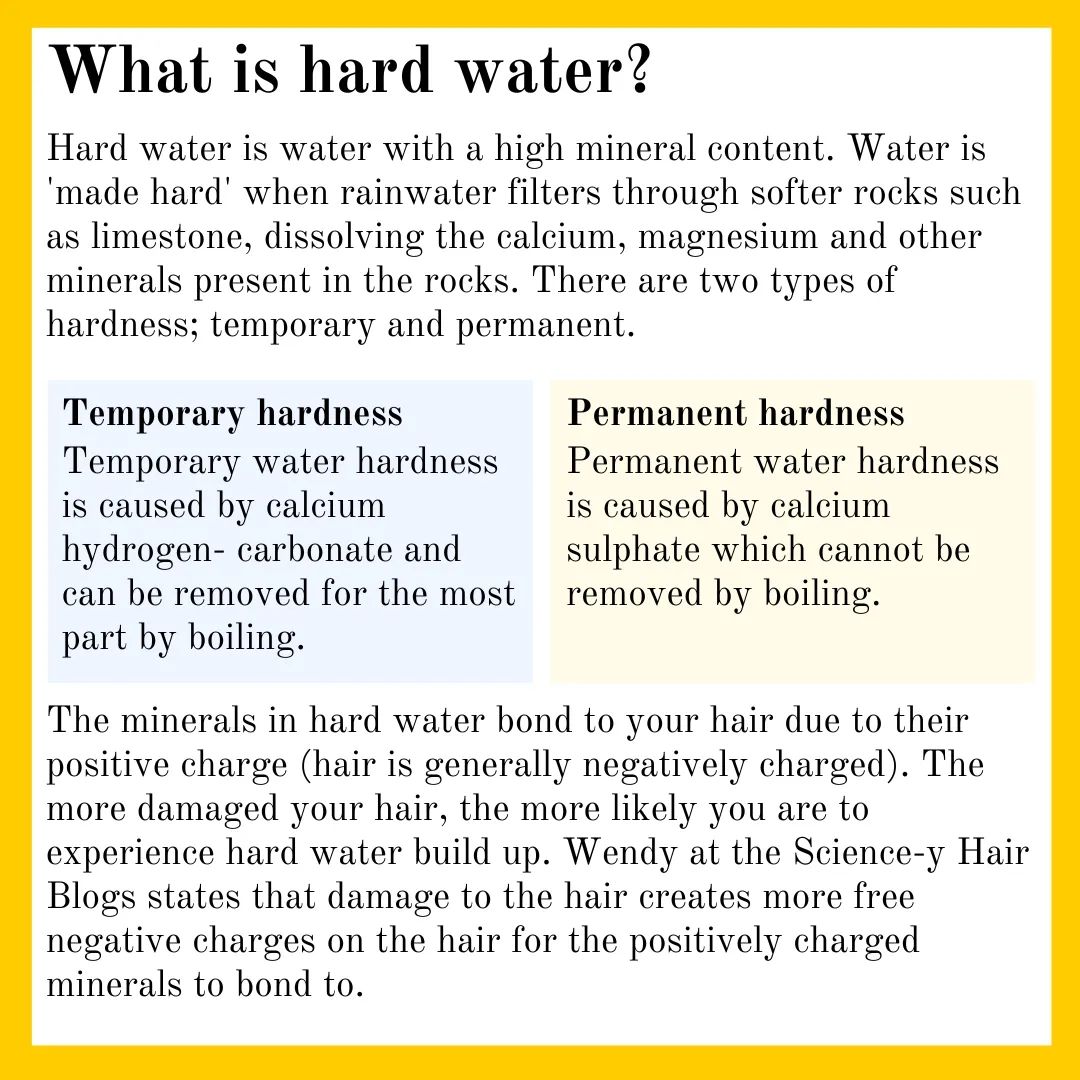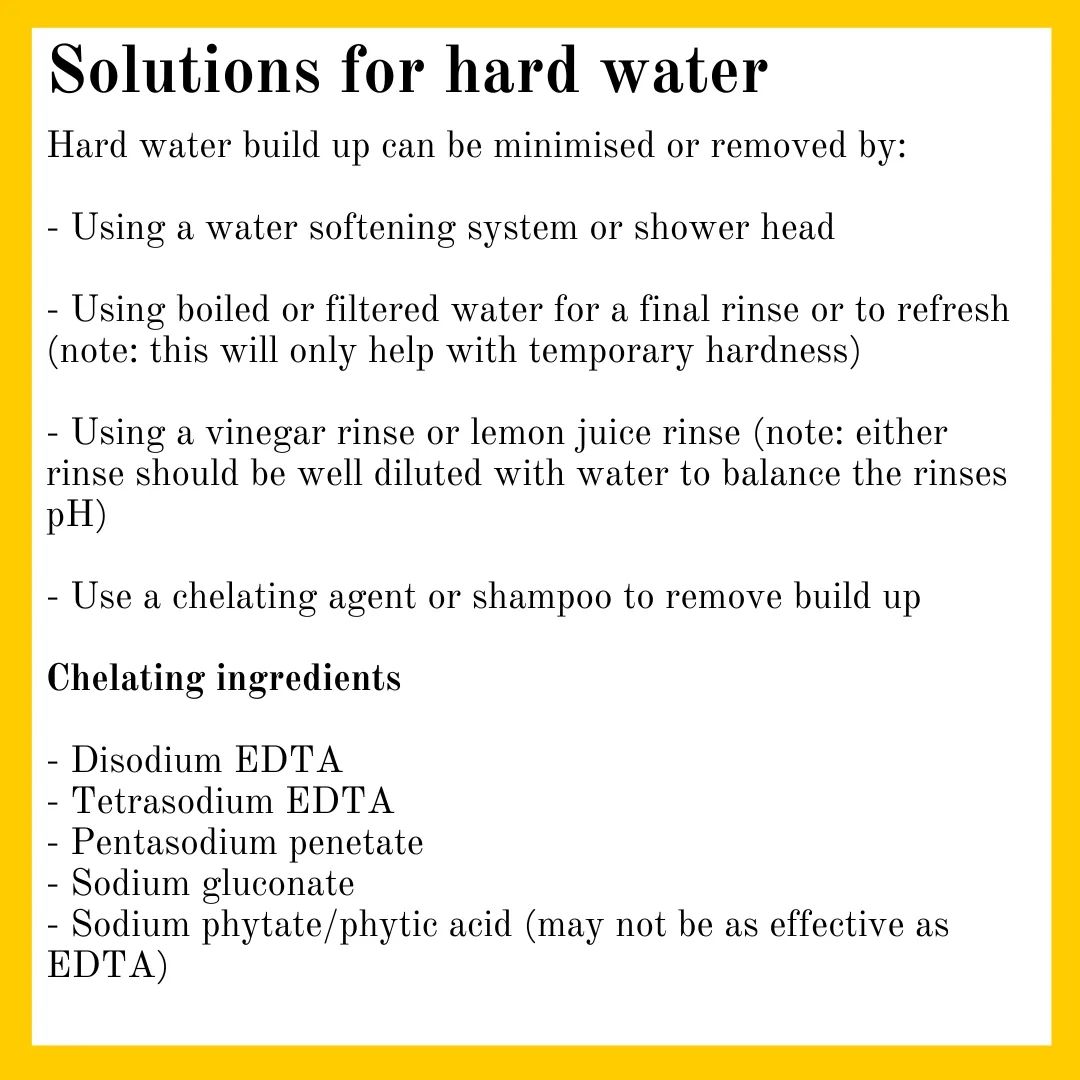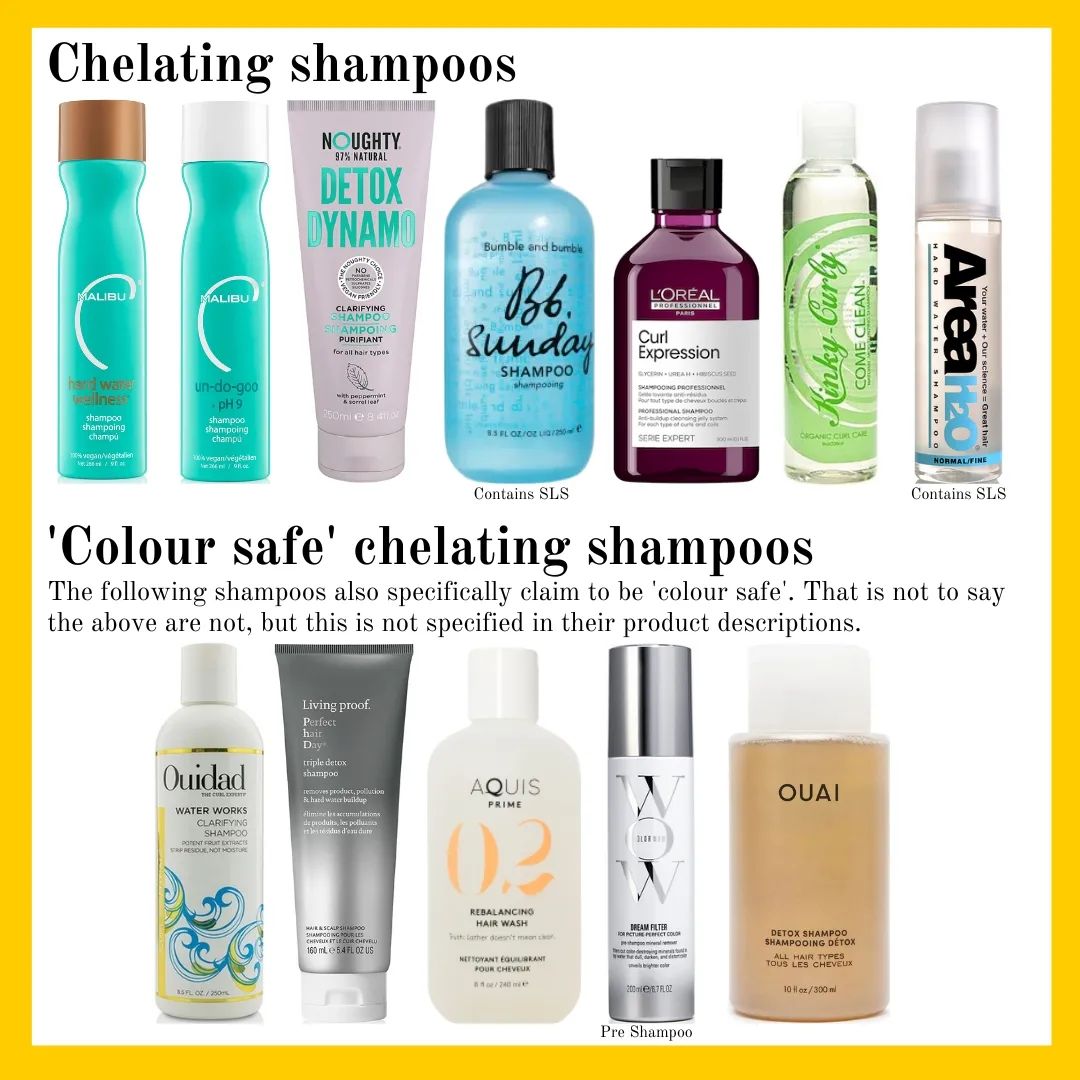




I recommend using a chelating shampoo instead of the listed alternatives, it is easy to mess up hair if you don't have the proper pH. A chelating shampoo will be the proper pH and is effective.
Taken from:
https://www.instagram.com/p/CkZHgkDIM-6
The showerstik is the only shower head that can actually filter out the minerals that I know of, regular shower heads can help remove chlorine but will not make water soft.
Hardness prevents soap from lathering by causing the development of an insoluble curdy precipitate in the water; hardness typically causes the buildup of hardness scale (such as seen in cooking pans). Dissolved calcium and magnesium salts are primarily responsible for most scaling in pipes and water heaters and cause numerous problems in laundry, kitchen, and bath.
Symptoms of Hard Water include:
-
Stiff, dingy laundry
-
Mineral deposits on dishes and glassware
-
High soap usage & need for fabric softeners
-
Extra work to remove soap curd on bathtubs & shower stalls
-
High energy costs, possibly due to scale build-up in pipes and on appliances
-
Scale build up in sinks, tubs, faucets & appliances
Taken from:
https://wqa.org/Learn-About-Water/Perceptible-Issues/Scale-Deposits/
Map of Hard Water in the USA (USGS):

General guidelines for classification of waters are:
-
0 to 60 mg/L (milligrams per liter) as calcium carbonate is classified as soft
-
61 to 120 mg/L as moderately hard
-
121 to 180 mg/L as hard
-
More than 180 mg/L as very hard.
Taken from:
https://www.usgs.gov/special-topics/water-science-school/science/hardness-water#overview

Yeah and "softened" water isn't the same as soft water. I just think of our water as mineral water, it's not pollution, it's minerals. But my god soap is awful in the hard water, just locks dirt onto surfaces. I learned the chemistry of this, but synthetic detergents have been A -OK , it's really only the lye soap (almost all bar soaps, and some liquid soaps) that feel so awful and can be actively harmful to hair and skin in hard water. It's funny to me because literally most of the world cities & 85% of the US water supply is hard water. It's not some mysterious problem, it's the norm. Soft water is unusual.
I can vouch for that Malibu C stuff for any kind of buildup. I keep a liter of the Hard water shampoo (gentle, low sulfate) and a small bottle of the undo goo (harsher) for clarifying occasionally. I do also agree if hair is droopy or acting weird, clarifying is a best first step.
(Also both of those pictures are of beautiful hair, LOL)
Yes you are very right, I just meant very hard water places might be a struggle. I added a map to the post, most places are hard water! Thanks for the info, I'm glad to have someone making suggestions and corrections and I learn new things from too. There were a lot of variations of maps so I went with the most official one I could find.
And yeah, welshiecurlgirl has very pretty hair. Her hair is fine and I think low-ish hair density but it looks gorgeous. She makes it work! She's studying to be a hairstylist I think.